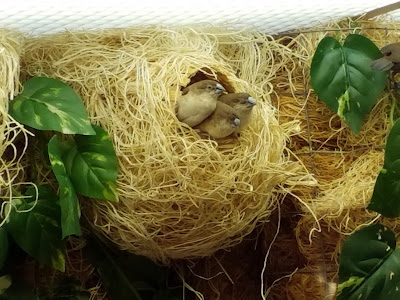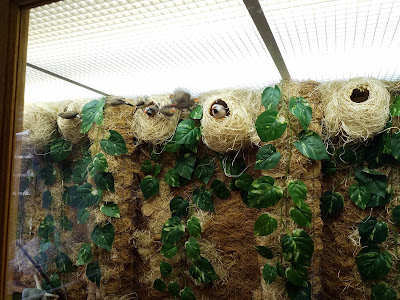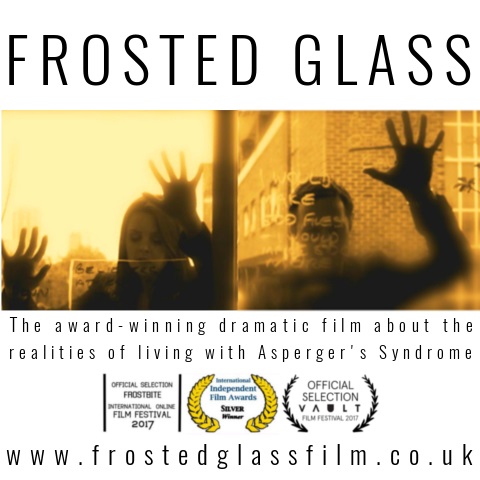I went to visit my grandmother a few months ago in two different hospitals. As such, I got a chance to observe a bit of what being in a hospital room entails. I've had the very good fortune to not be hospitalized after the age of 3, so I don't have any firsthand experience to draw on.
Also, full disclosure: I am not a medical professional and have very little experience with why the system is designed the way it is. Still, the experience was sufficiently, um... enlightening, that I thought I'd share a bit of my observations.
Before I begin, I should note that I have no real complaints about the medical care my grandmother received, and the hospital staff I dealt with seemed neutrally helpful at absolute worst. Most were warm and caring. The corridors of the hospitals were fairly well-marked, even containing artwork and large windows to let in natural light. I really can't complain about most of the experience.
I did want to highlight a few things, though, because first and foremost, I super duper do not ever want to have to stay overnight in a hospital room. There are so many reasons for this. We'll start with the easy ones.
Hospital rooms are noisy. The doors to these rooms are often kept open. If the patient can't get up by themselves, that's even less negotiable. That means people walking by, whether they're staff or visitors, are clearly audible to my sensitive ears. The air conditioning unit/heater was also very loud. If the person is kept on oxygen, that machine also erratically makes noise aside from the puff of oxygen every 5 seconds. I can't imagine having to try to sleep with that on. And lastly, my grandmother was on an IV. The IV was automated, to a point, and itself made this faint, but highly erratic scratchy-clicky noise. It's probably highly ignorable to most people. Not to me.
Also on the sensory end of things, the temperature. It was the middle of winter when I visited, so while the room itself seemed warm upon arrival, I quickly found, sitting still and visiting, that I became cold. For people who are stuck recuperating in a bed, this would mean they'd be cold all the time. Yes, the hospital might provide blankets, but I've never yet had a nice warm comfortable blanket provided by a hospital for any procedure. "Easily washable" and "highly comfortable" simply don't mix, I guess.
Then there's of course the various things that come with your care in the hospital. The oxygen puffs I mentioned? Besides being loud, they are also cold. Y'know how it's painful and annoying to have a frozen nose when you're walking around outside? With the magic of modern medicine, you can have an icy nose while you're inside, too. Then there's the IV in your hand, which can hurt as well as leaving you tethered to a bag on a pole. You may not be able or allowed to get out of bed to stretch your legs, as well.
Distinctively disturbing-to-me, also... hospital rooms are depersonalized, to the point of being oppressive (to me). Neither room my grandmother inhabited during her stays was small. And yet, there was little-to-nothing personalized. All the surfaces were filled with hospital equipment, with almost no place for flowers, get-well-soon cards, or even personal possessions. The second room had no window at all. And both rooms were cluttered with medical equipment, to the point of barely being able to have visitors sit near the patient.
The staff, nice as they were, rarely if ever knocked on the door before entering. And this could happen at any time, including the hours when you should be sleeping. There was a guy that walked in without a word, installed a piece of equipment in the room using power tools, and proceeded to waltz back out again. I can't say for sure that this was normal, but nobody in the room batted an eye about it.
Finally, there was a certain amount of forced passivity about the whole experience. You can be confined to a single room, with few or none of your personal possessions. You do as you're told, eat what's put before you, and pretty much just sit in bed until you're well enough to leave.
I dunno if it's clear why I find all of this horrifying from how I've written this post, but I'll explain.
From a sensory standpoint, a good place to heal and rehabilitate is not a noisy, chilly one. With random noises and people going by at all hours, I wouldn't be able to sleep well, which would in turn slow my recovery as well as degrade my sanity. Also, I get miserable when I get cold, so I would spend most of my time miserable and under scratchy, unpleasant hospital blankets.
As an autistic person, and to a lesser extent, as a human being, I prefer comfortable, familiar surroundings. That means the having the weird light blue faux-fur blanket in my computer chair, my tablet and computer, a plastic glass with filtered water, and roughly a dozen other things, minimum. Guess how many of those would fit in one of these hospital rooms? (If you guessed "just the tablet, maybe," you win!) I'd quickly become miserable without these things, assuming the cold didn't already make me feel miserable.
I would be constantly removing the itchy, chilly nose-pump oxygen thing, and probably getting yelled at by the staff for doing that. I'd probably want the IV removed as soon as it started aching, as well, which is super unhelpful considering why they use them. I would probably become embarrassed and annoyed by the computer screen with the readout of my pulse, blood pressure, and whatever else other medical details they cared to track via the equipment.
But in the end, what would probably be most poisonous to me would be the forced passivity. I like being independent. I like having the ability to say "I'm going to get up and take a walk now" and then going and doing it. Hospital rooms seem very geared against that kind of personal agency.
I recognize that this is partially by design. Medical care is hard to give effectively, particularly in cases when you don't know why the patient is sick or injured in the first place. Then, too, the patient may not be cooperative. In some cases the person has to be kept still, lest they make a back injury worse, or fall due to poor balance, or injure themselves. I'm sure there are other complicating factors I haven't thought of.
To me, though, the hospital's first priority doesn't seem to be the patient's mental wellbeing, but rather their physical wellbeing. I imagine, in the future, these things will be considered two parts of the same thing, but they aren't at the moment from what I can tell. As a person with an education in psychology, I don't approve... but as I noted above, I know very little about how or why these systems were developed the way they are.
I expect, when I end up in a hospital, I will have many very annoying questions for the staff.








